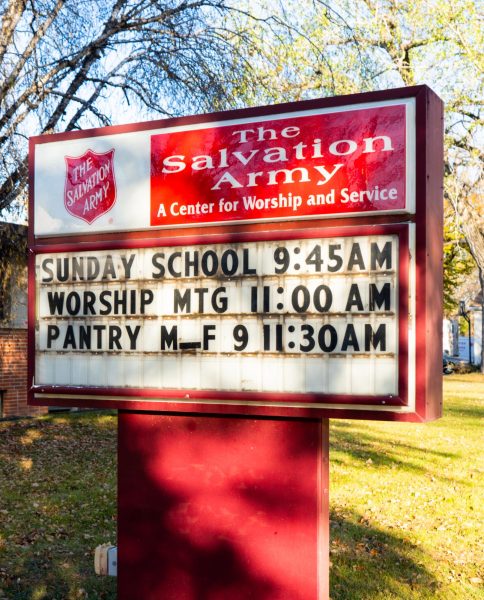‘War on Christmas’ product of spoiled attitudes
Perceived religious persecution caused by arrogance.
If you follow politics at all, you might be familiar with a concept known as separation of church and state. Simply put, it means that government should not be in control of religion, and religion should not be in control of government.
You might say that you’ve heard this all before and wonder what it has to do with you. Even if you don’t care now, you should.
“You should care because you should consider the world view of the person you are putting in office and how it will affect you,” UND sophomore Michael Vander Meulen said. “Everyone has a world view regardless of which religion they say they have, even if they don’t claim a religion.”
There are some who claim that Christians are the target of active persecution in the United States. The most common source of this opinion happens to be Fox News, with people like Sean Hannity insisting that Christianity is under attack in America.
However, most of the events that they claim are persecution are merely an effort to maintain the idea of separation of church and state upon which this nation was founded. For those of you who remember middle school history, England had only one church, the Church of England. Anything outside of this was unacceptable. This led the pilgrims to seek out a place where they were able to worship how they wanted.
That still hasn’t changed. Christians are completely free to worship in whichever manner they choose on one condition that seems pretty fair: They can’t infringe on the rights of others who don’t share their beliefs. After all, that was the entire reason we came here in the first place.
I think Jon Stewart from the Daily Show said it best when he said, “You’ve confused a war on Christianity with not always getting everything you want.” Sounds about right to me.
Christianity is not under attack in America. Even if it were, I seem to recall a particularly wise carpenter who once said, “Blessed are you when people insult you, persecute you and falsely say all kinds of evil against you because of me” (Matthew 5:11). Of course, this was Jesus, who also said to love your enemies and pray for those who persecute you.
There are certainly some places in which Christians are persecuted, but I think it’s important to mention that it’s not just Christianity. Any religion that is not the official state religion — and America has no official state religion — is persecuted. This demonstrates the importance of the separation of church and state.
It is insulting to compare being asked to not force your views on people who might not share them with people around the world who are tortured and killed in foreign countries for their beliefs. That sounds a lot more like “war” than having your waitress at Perkin’s say “Happy Holidays” instead of “Merry Christmas.”
Religion in general has a habit of being divisive. From Lutherans to Catholics to Baptists, there are many different subdivisions of Christianity. Even amongst these subdivisions there are even more sections. There are over 400 versions of Baptists alone. This is to say nothing of other major religions besides Christianity such as Islam, Hinduism and others.
If we gave any of these religions — or specifically their subdivisions — preference, it would be unfair to the others. That was the problem with the Church of England. Everyone who didn’t share every single viewpoint of the church was ostracized.
Some Christians might not see anything wrong with showing a little favoritism to Christianity. As shown on Fox News, they believe that not getting special treatment is equivalent to persecution. To quote the Christian holy book again, Jesus also said, “Do unto others as you would have them do unto you” (Luke 6:31).
You wouldn’t want governmental policies that were inspired by Islam, Scientology or Hinduism, would you? So why would you want other people to have to live by or participate in religious views and practices that are not their own?
Michael Rauser is a staff writer for The Dakota Student. He can be reached at michael.rauser@my.und.edu.






